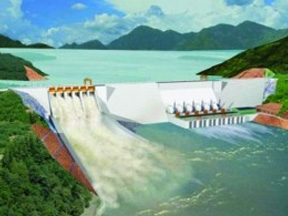Kathmandu: In response to Prime Minister Pushpa Kamal Dahal’s directive, the Ministry of Energy has initiated preparations to revoke licenses of non-operational hydropower projects. The move comes as concerns rise over the trend of acquiring licenses without making tangible progress in project development.
The Department of Electricity Development (DoED) has taken charge of the initiative, requesting progress reports from 55 hydropower projects that have shown no significant advancement over the past five years. The plan is to cancel licenses if project promoters fail to provide a clear basis and action plan for development.
Expressing his worries about the prevailing trend, Prime Minister Dahal personally contacted Energy Minister Shakti Bahadur Basnet on Thursday, instructing him to take necessary measures to curb the acquisition of licenses without corresponding progress in project implementation.
Chiranjeewee Chataut, the director general of the department, confirmed ongoing discussions with project promoters who have failed to make progress despite holding licenses. Financial constraints have been cited as a significant hindrance, with instances where hydropower projects have remained inactive for up to eight years after obtaining licenses.
The spotlight falls on the 420 MW Tila-2 hydropower project, the largest among those required to submit progress reports. Developed by SC Power Company Pvt Ltd, the project is yet to commence work. On the smaller scale, the 1.5 MW Istul Khola hydroelectric project of Amar Jayo Jalati Hydropower Pvt is also under scrutiny.
Progress reports are not limited to private ventures; government projects, including the 100 MW Tamakoshi-5 hydropower project, are also in question. Tamakoshi Hydropower Company, a subsidiary of the Nepal Electricity Authority, faces scrutiny as work on the project is yet to begin, despite the issuance of a contract notice. Disputes have led to the cancellation of the contract, necessitating a restart of the process.
